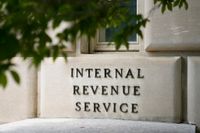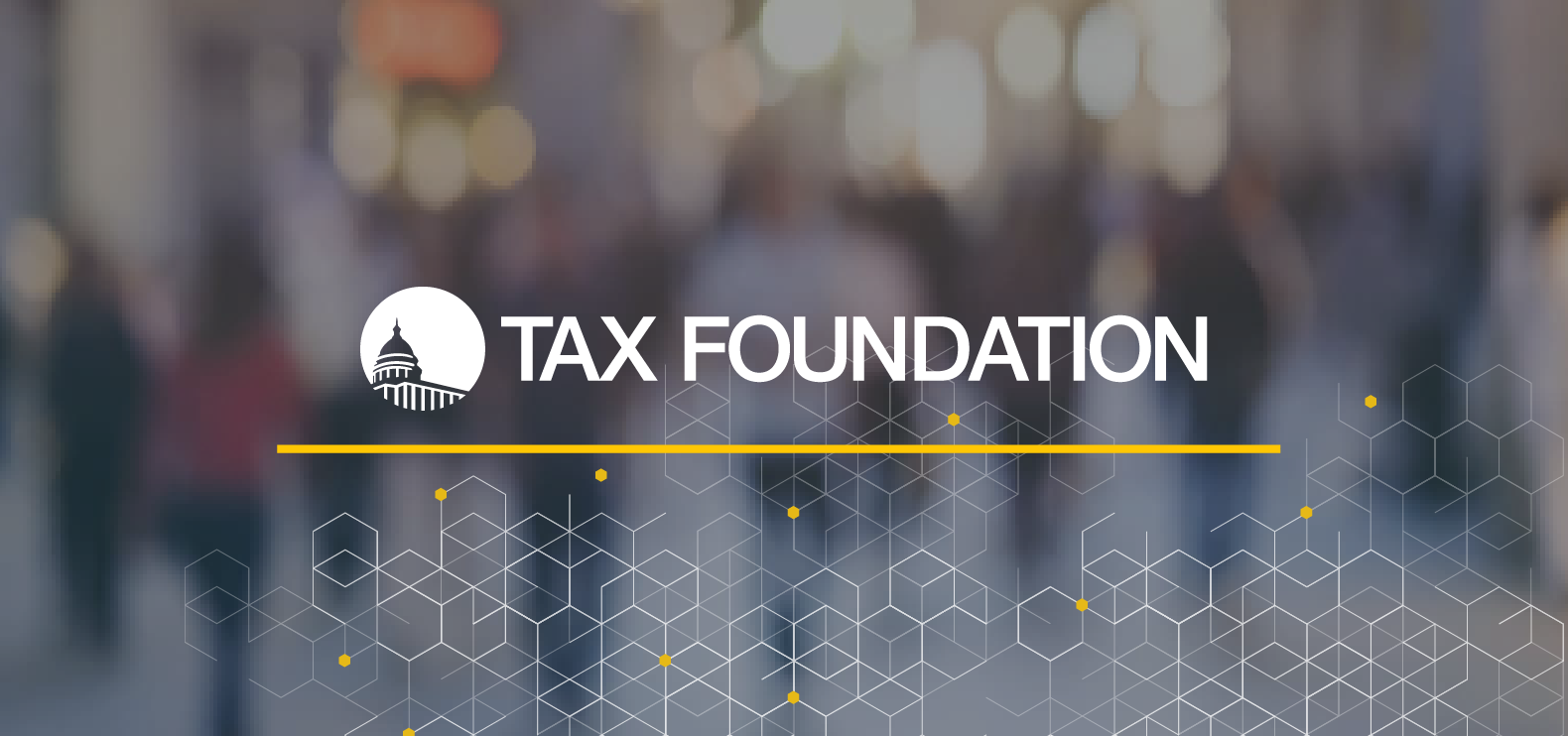Explore web search results related to this domain and discover relevant information.

The IRS has hit taxpayers with over $162 million in penalties for claiming fraudulent tax credits touted on social media.
The Internal Revenue Service has hit taxpayers with over $162 million in penalties for claiming fraudulent tax credits touted on social media.The claims involve illegitimate claims for tax breaks such as the Fuel Tax Credit and the Sick and Family Leave Credit. The IRS has seen a surge in such claims in the past five years, and · warned last year about abusing them. Social media posts promoting such schemes have prompted thousands of taxpayers to file inaccurate, frivolous returns, often leading to the denial of tax refunds and hefty penalties.So far, the IRS has imposed over 32,000 penalties, costing taxpayers more than $162 million. It's in the taxpayer's best interest to stay informed." The schemes often share some traits in common, stemming from social media posts claiming virtually everybody qualifies for certain tax credits.The Internal Revenue Service has hit taxpayers with over $162 million in penalties for claiming fraudulent tax credits they heard about through social media.

HMRC rules could end in a financial penalty, warns one specialist
You'll likely need to claim gifts you've received on your tax return if you: earn over £1,000 from influencing in the tax year, receive gifts worth over £50, receive gifts in return for promoting services or products on social media.Thousands of Brits who post pictures of their dinner or holidays on social media could face shock penalties from the tax authorities.Mitch Hahn, head of specialist influencer accountants Nordens, said: "If you earn from influencing alongside other jobs, HMRC looks at total income. "Side earnings of any kind can push you into higher tax brackets.He further explained: "But, even for those earning money from content creation on the side, these earnings could make you liable for tax, with gifts you receive from brands potentially being part of your tax obligation, say experts.
Note: Since your browser does not support JavaScript, you must press the Resume button once to proceed
Members of the media should refer to the following for contact information.
Other Taxes and Fees · Members of the media should refer to the following for contact information. News and Events · Office of Public Affairs: 1-916-327-8988 · Media Inquiries · Office of Public Affairs: 1-916-309-8488 · Media Information · EDD Communications Office: 1-916-654-9029 ·State of California

Practitioners must exercise awareness of how their tax-related social media and other online posts may implicate professional standards.
But here’s the tricky part: These standards and regulations on tax advice generally apply in the context of an established client relationship where a tax practitioner provides tax advice for a client’s specific facts and circumstances. So, does a tax practitioner’s social media post with tax planning tips constitute tax advice?Based on regulations, case law, and other IRS guidance, it would likely be difficult to establish that a tax professional’s social media post is enough for a taxpayer’s reliance when taking a certain tax position. For example, Neonatology Associates, P.A., 115 T.C.Regardless of whether a tax professional’s technical content shared online rises to the level of tax advice under professional standards and IRS guidance, in this online era, taxpayers can, and do, rely on tax professionals’ online content in preparing their tax returns. The IRS has flagged reliance on social media for tax information as a rising risk issue.Example: J, a CPA and a tax senior manager at a top 10 accounting firm, has his eye on the partner track and wants to leverage social media to help him grow his potential client base. So, he’s been posting a few times a week on social media. To promote his tax services, J shares a social media post about how his team recently helped a client claim a $20,000 tax credit.

The IRS is warning taxpayers of two social media tax "tips" in particular.
The IRS is warning taxpayers of two social media tax “tips” in particular.The IRS says it is seeing “repeated instances” of taxpayers claiming Form 7202, even on income earned as an employee and not as a self-employed person. “Since 2022, the IRS has seen a surge in questionable refund claims fueled by misleading social media posts and bad actors posing as tax experts,” the release states.”The Fuel Tax Credit was created largely for farming use and “off-highway business” and isn’t applicable for most taxpayers, according to the IRS, contrary to what the social media “experts” advise.“Every year the misleading tax advice given on social media changes, but there are common threads that taxpayers can begin to recognize: it sounds too good to be true, it will save you thousands in tax or result in you receiving a substantially larger refund, and only the person giving the advice is in on the secret,” Adam Brewer, tax attorney with AB Tax Law, told Nexstar in an email.

The IRS has assessed $162 million in penalties over false tax credit claims tied to social media scams, the agency said Monday.
The IRS said that since 2022, it has seen a surge in questionable refund claims fueled by misleading social media posts and bad actors posing as tax experts. The posts often falsely claim that all taxpayers are eligible for credits they don’t actually qualify for.These scams, which include those related to the Fuel Tax Credit and the Sick and Family Leave Credit, have led thousands of taxpayers to file inaccurate or frivolous returns, often resulting in the ...
I am a nonresident alien (non-US taxpayer).
Which tax form do I fill out?Will a portion of my earnings be withheld for US taxes?
The IRS is warning taxpayers of two social media tax "tips" in particular.
The IRS is warning taxpayers of two social media tax “tips” in particular.The IRS says it is seeing “repeated instances” of taxpayers claiming Form 7202, even on income earned as an employee and not as a self-employed person. “Since 2022, the IRS has seen a surge in questionable refund claims fueled by misleading social media posts and bad actors posing as tax experts,” the release states.”The Fuel Tax Credit was created largely for farming use and “off-highway business” and isn’t applicable for most taxpayers, according to the IRS, contrary to what the social media “experts” advise.“Every year the misleading tax advice given on social media changes, but there are common threads that taxpayers can begin to recognize: it sounds too good to be true, it will save you thousands in tax or result in you receiving a substantially larger refund, and only the person giving the advice is in on the secret,” Adam Brewer, tax attorney with AB Tax Law, told Nexstar in an email.

These scams have led thousands of taxpayers to file inaccurate or frivolous returns, often resulting in the denial of refunds and steep penalties. Since 2022, the IRS has seen a surge in questionable refund claims fueled by misleading social media posts and bad actors posing as tax experts.
WASHINGTON — The Internal Revenue Service is alerting taxpayers about a growing number of fraudulent tax schemes circulating on social media that promote the misuse of credits such as the Fuel Tax Credit and the Sick and Family Leave Credit.These scams have led thousands of taxpayers to file inaccurate or frivolous returns, often resulting in the denial of refunds and steep penalties. Since 2022, the IRS has seen a surge in questionable refund claims fueled by misleading social media posts and bad actors posing as tax experts.The IRS urges all taxpayers to be cautious when relying on social media posts.For the latest updates on tax scams and IRS warnings, visit Tax Scams. In addition to IRS.gov, the IRS routinely publishes helpful information on IRS Social Media.
The IRS has dished out more than $162 million in penalties to taxpayers who have fallen for fraudulent tax schemes circulating on social media that promote the misuse of certain tax credits, the agency said on Monday.
As a result, thousands of taxpayers have filed inaccurate or frivolous returns that falsely claim the Fuel Tax Credit and the Sick and Family Leave Credit, often resulting in the denial of refunds and steep penalties, the IRS stated. Since 2022, the agency has seen a surge in questionable refund claims fueled by misleading social media posts and bad actors posing as tax experts.So far, the IRS has imposed over 32,000 penalties costing taxpayers more than $162 million. It’s in the taxpayer’s best interest to stay informed.” · According to the IRS, these scams often have common traits: Social media posts that claim everyone qualifies for certain tax credits.Related article: IRS Issues New Warning For Taxpayers to Avoid Losing Money, Personal Data · Related article: IRS Warns on Social Media Tax Credit ScamRelated article: IRS Issues FAQs About Tax Advice Scams on Social Media

Media organizations need money to operate and rarely bite the hands that feed them.[2] Humans too often accept information that supports their preconceptions and too seldom search for alternative information. The 2002 Nobel Memorial Prize in Economics was awarded to Daniel Kahneman largely for documenting how this works.[3] ... Millions of words in the US federal tax ...
Media organizations need money to operate and rarely bite the hands that feed them.[2] Humans too often accept information that supports their preconceptions and too seldom search for alternative information. The 2002 Nobel Memorial Prize in Economics was awarded to Daniel Kahneman largely for documenting how this works.[3] ... Millions of words in the US federal tax code and tax regulations, 1955-2005 according to The Tax Foundation (taxfoundation.org).For the median American family, this gap is $39,000 per year (just over $100 per day): If the economic growth during this period had been broadly shared as it was from 1947 to 1970, the median household income would have been $39,000 per year higher than it was in 2010. This plot was created by combining data from the US Census Bureau[9] and the US Internal Revenue Service.[10] There are systematic differences between these two sources, but the differences are small relative to the scale of this plot.[11] Scott Hodge of the Tax Foundation claims that the complexity alone of US taxes will cost the US over $400 billion in 2016.[12] This is over 2 percent of US Gross Domestic Product (GDP), forecasted to be $18.6 trillion in 2016.We hear very little about this in the media. Why? To what extent might exposure limit the ability of major advertisers to get favors from government that do not actually increase the general welfare? This complexity cost could be reduced almost overnight by having the Internal Revenue Service (IRS) mail each taxpayer a draft return with an estimated amount either due or to be refunded.Media executives therefore must of necessity flinch before disseminating such information: They don't want to lose their share of that roughly $8 billion in advertising. Even if they print one story exposing, for example, Intuit's $1.7 million effort to kill a program that would make tax preparation easier for people in California, they will not likely let that story grow into a media feeding frenzy, which would be needed to amortize the cost of any serious investigative journalism required before disseminating similar information affecting a larger portion of the major advertisers.


The IRS has dished out more than $162 million in penalties to taxpayers who have fallen for fraudulent tax schemes circulating on social media that promote the misuse of certain tax credits, the agency said on Monday.
As a result, thousands of taxpayers have filed inaccurate or frivolous returns that falsely claim the Fuel Tax Credit and the Sick and Family Leave Credit, often resulting in the denial of refunds and steep penalties, the IRS stated. Since 2022, the agency has seen a surge in questionable refund claims fueled by misleading social media posts and bad actors posing as tax experts.So far, the IRS has imposed over 32,000 penalties costing taxpayers more than $162 million. It’s in the taxpayer’s best interest to stay informed.” · According to the IRS, these scams often have common traits: Social media posts that claim everyone qualifies for certain tax credits.Related article: IRS Issues New Warning For Taxpayers to Avoid Losing Money, Personal Data · Related article: IRS Warns on Social Media Tax Credit ScamRelated article: IRS Issues FAQs About Tax Advice Scams on Social Media
Taxpayers face the possibility of rejected claims and a penalty of up to $5,000 for filing a frivolous return under Sec. 6702, plus other possible penalties, the IRS said. The IRS first included social media advice as a stand-alone item on its annual Dirty Dozen list — which highlights 12 ...
Taxpayers face the possibility of rejected claims and a penalty of up to $5,000 for filing a frivolous return under Sec. 6702, plus other possible penalties, the IRS said. The IRS first included social media advice as a stand-alone item on its annual Dirty Dozen list — which highlights 12 common tax scams — in 2020.In a speech at AICPA & CIMA ENGAGE in 2024, National Taxpayer Advocate Erin Collins singled out TikTok as particularly problematic for fraudulent tax advice because federal government employees are banned from even seeing its posts. “We are prohibited from going into TikTok as a federal agency, so how do you counter a social media site that you can’t go into?” she asked.The IRS noted the following typical traits of social media scams: Posts that claim everyone qualifies for certain tax credits.Social media can be costly for taxpayers who turn to it for advice on filing returns, the IRS reiterated Monday.

Jesse Solis is Communications Director at the Tax Foundation, where he works to build coverage of the work of the Tax Foundation’s scholars.
Sarah Wilbur is Communications Manager at the Tax Foundation where she advances the organization’s institutional reach by developing its corporate communications and media programs.Our experts are continuously analyzing the day’s most relevant tax policy topics and are relied upon routinely for presentations, testimony, and media appearances spanning every level of government.Jesse Solis is Communications Director at the Tax Foundation, where he works to build coverage of the work of the Tax Foundation’s scholars and assists the marketing and communications team with overall strategy.The Tax Foundation is the world's leading nonpartisan tax policy 501(c)(3) nonprofit.

Welcome to the resource center for members of the media — online tools and information straight from the source available in English, Spanish, and more. Here you'll find links to a variety of resources and multimedia files to help you report the latest tax news.
We have video tax tips, public service announcements, and more. The IRS has a presence on social media platforms.Find press kits, news releases, public service ads, sound bites, radio spots and more in the IRS Multimedia Center.We have numerous video tax tips available for viewing, along with their texts.In addition to audio and video Tax Tips, we also have them in print.

Revenue service says free perks must also be declared as income, with over R500bn in unpaid taxes at stake.
Influencers have been added to Sars’s taxpayer segmentation model, and the agency is rolling out educational campaigns to improve compliance. Image: Gabby Jones/Bloomberg · The South African Revenue Service (Sars) has clarified how social media influencers will be taxed, warning that all forms of income – whether paid in cash, products, services or travel – must be declared.As a taxpayer I am comforted that some of my tax burden is being spread across a wider field, but I am extremely angry that the ANC has allowed the misappropriation, fraud, corruption and lawlessness to get to the point where such desperate measures are needed. Added to my anger is the fact that only registered people and companies are paying and unregistered entities and friends are not ... I really think the number of social media influencers making taxable income is insignificant.I really think the number of social media influencers making taxable income is insignificant. I cannot imagine that we have more than a few social media influencers making significant income online, being paid by the like of Youtube. Often the online presence is mainly used to market an actual real-world business that is registered.Social Media podcasters are being hit both ways, Media Publication Board as well as now tax.

Income Tax Returns for FY 2024–25: Learn how YouTubers and social media creators should file ITR, choose the right form, and manage tax on digital earnings.
The last date for filing Income Tax Returns (ITR) for the financial year (FY) 2024–25 is September 15, 2025, and the deadline is fast approaching. Filing ITR is not just a legal requirement but also an important part of establishing your financial identity. With YouTube and other social media emerging as full-fledged careers for many youngsters and professionals, content creators must understand how to file their returns and which form is best suited for them.Income from advertisements, brand promotions, affiliate marketing, paid collaborations, or consulting services through videos falls directly under the tax net. According to the Income Tax Act, if YouTube or social media earnings are your main source of livelihood, they will be treated as business income.The tax applicable on YouTube or social media income depends on your annual earnings. India follows a slab-based taxation system, where the tax rate increases with higher income.With YouTube and social media turning into full-time careers for many professionals, creators must know how to file ITR correctly and choose the form that suits them best

Taxpayers face the possibility of rejected claims and a penalty of up to $5,000 for filing a frivolous return under Sec. 6702, plus other possible penalties, the IRS said. The IRS first included social media advice as a stand-alone item on its annual Dirty Dozen list — which highlights 12 ...
Taxpayers face the possibility of rejected claims and a penalty of up to $5,000 for filing a frivolous return under Sec. 6702, plus other possible penalties, the IRS said. The IRS first included social media advice as a stand-alone item on its annual Dirty Dozen list — which highlights 12 common tax scams — in 2020.In a speech at AICPA & CIMA ENGAGE in 2024, National Taxpayer Advocate Erin Collins singled out TikTok as particularly problematic for fraudulent tax advice because federal government employees are banned from even seeing its posts. “We are prohibited from going into TikTok as a federal agency, so how do you counter a social media site that you can’t go into?” she asked.The IRS noted the following typical traits of social media scams: Posts that claim everyone qualifies for certain tax credits.Social media can be costly for taxpayers who turn to it for advice on filing returns, the IRS reiterated Monday.

The agency has said thousands of taxpayers have filed inaccurate returns after following misleading social media advice.
Tax scams often follow a predictable playbook, making them easier to spot if you know what to look for. Common red flags the IRS has warned of include social media posts that insist everyone qualifies for certain tax credits, or promoters who promise "easy" or "fast" refunds with little to no documentation.The IRS advises taxpayers who suspect they were misled to amend returns using Form 1040-X, respond promptly to any IRS notices and consult reputable tax professionals or official IRS resources when filing taxes. The federal agency recommends following verified IRS social media accounts and subscribing to e-news to avoid misinformation.The Internal Revenue Service (IRS) has warned taxpayers about a rise in fraudulent tax schemes circulating on social media.The IRS is warning taxpayers about a wave of fraudulent schemes spreading across social media that encourage the improper use of tax credits, such as the Fuel Tax Credit and the Sick and Family Leave Credit.



